

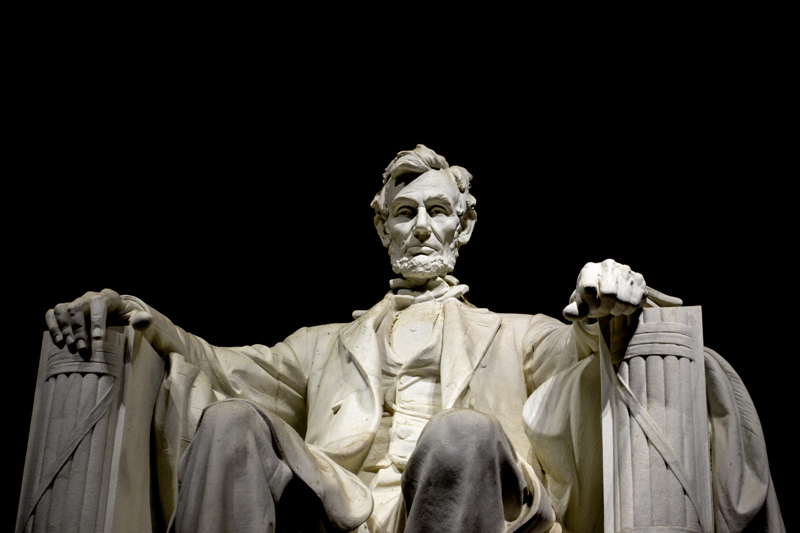
Lincoln Club of Delaware
Photos by Kathy F. Atkinson, iStock and courtesy of Karren Helsel-Spry February 13, 2020
A group with strong ties to UD, gathers regularly to celebrate the 16th U.S. President
When the lights of a ballroom chandelier at the Wilmington Country Club flickered and went momentarily black on the evening of Feb. 7, elegantly dressed men and women speculated that the spirit of Abraham Lincoln might be in the room.
“He speaks,” said one tuxedoed gentleman.
For those who believe in such things, it’s not a stretch to imagine that the 16th president of the United States would choose this event to communicate from the great beyond. This was, after all, the 91st annual dinner meeting of the Lincoln Club of Delaware. Among the oldest and most prestigious Lincoln clubs in the country (it’s estimated there are about 20), the group convenes semiannually to celebrate the life and career of Honest Abe.
“People are captivated by the man,” said Tim Murray, longtime member. Murray is head of the Morris Library’s Special Collections Department, within the University of Delaware’s Library, Museums and Press. UD’s history is intertwined with the club’s. “He was an iconic figure — a brilliant military strategist, a remarkable speaker, and a leader during the most contentious time in American history: The Civil War.”
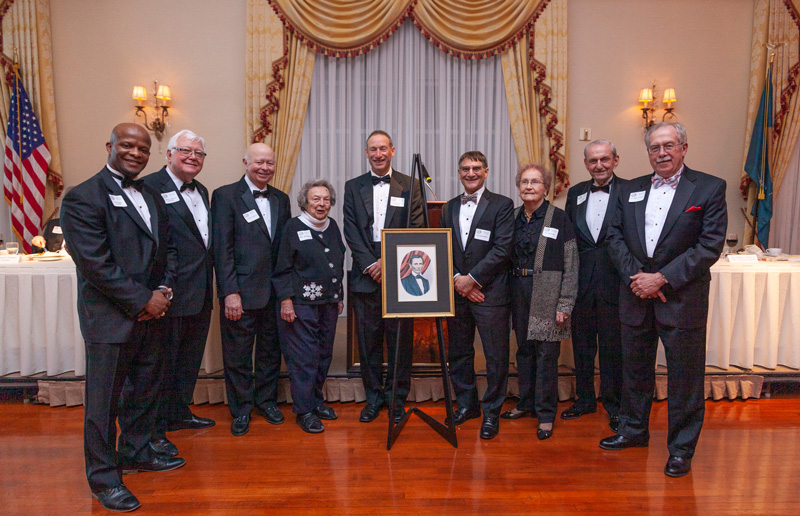
You don’t have to look far for examples of Lincoln fanaticism, which will be especially heightened on Monday, Feb. 17 — Presidents’ Day. Across the country, people compete in Lincoln lookalike contests. They make Lincoln-inspired robots, amusement parks and beer. And, in Delaware, 288 residents, many of them UD graduates or professors, have confirmed their #Lincolnphile status (that’s a real Twitter hashtag) by joining the esteemed Lincoln Club.
The organization traces its roots to 1929, when a group of men (no women allowed, in those early days) met informally at the Wilmington Country Club to celebrate the anniversary of Lincoln’s birth, Feb. 12. Among these charter members were Walter Hullihen, then-president of UD, and Hugh M. Morris, a federal judge appointed by President Woodrow Wilson to serve the U.S. District Court for the District of Delaware. He was a UD alumnus, and the Morris Library is named in his honor. Later, David Roselle, UD president from 1990 through 2007, would also join the club and serve as its president.
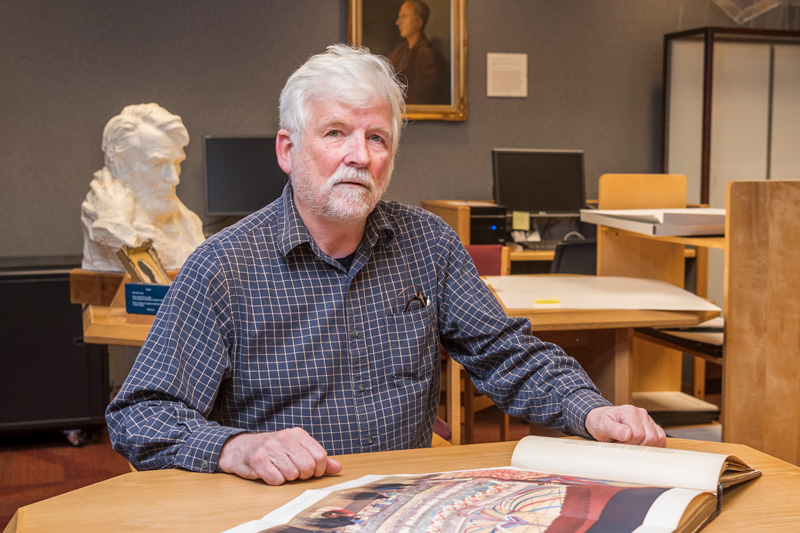
The driving force behind the group’s founding was Frank G. Tallman, an avid collector of Lincoln artifacts and memorabilia who traced his lineage to Lincoln. In 1938, he presented his extensive collection — among the largest and most important of its kind in the United States — to the Wilmington Institute Free Library, which established a special “Lincoln Room” to house it. Over the years, other club members added their own Lincoln ephemera to the mix.
When it became apparent, in 1972, that this location didn’t have the space or resources necessary to preserve such significant relics, including 15 original Lincoln documents, the club made an important decision: Given the ties to UD, the items should be transferred to the University. Today, they live in the Special Collections Department of Morris Library.
“I think people are always amazed at what’s here,” Murray said. “Even though these are valuable artifacts, we’re making them available. They’re not just sitting behind glass.”
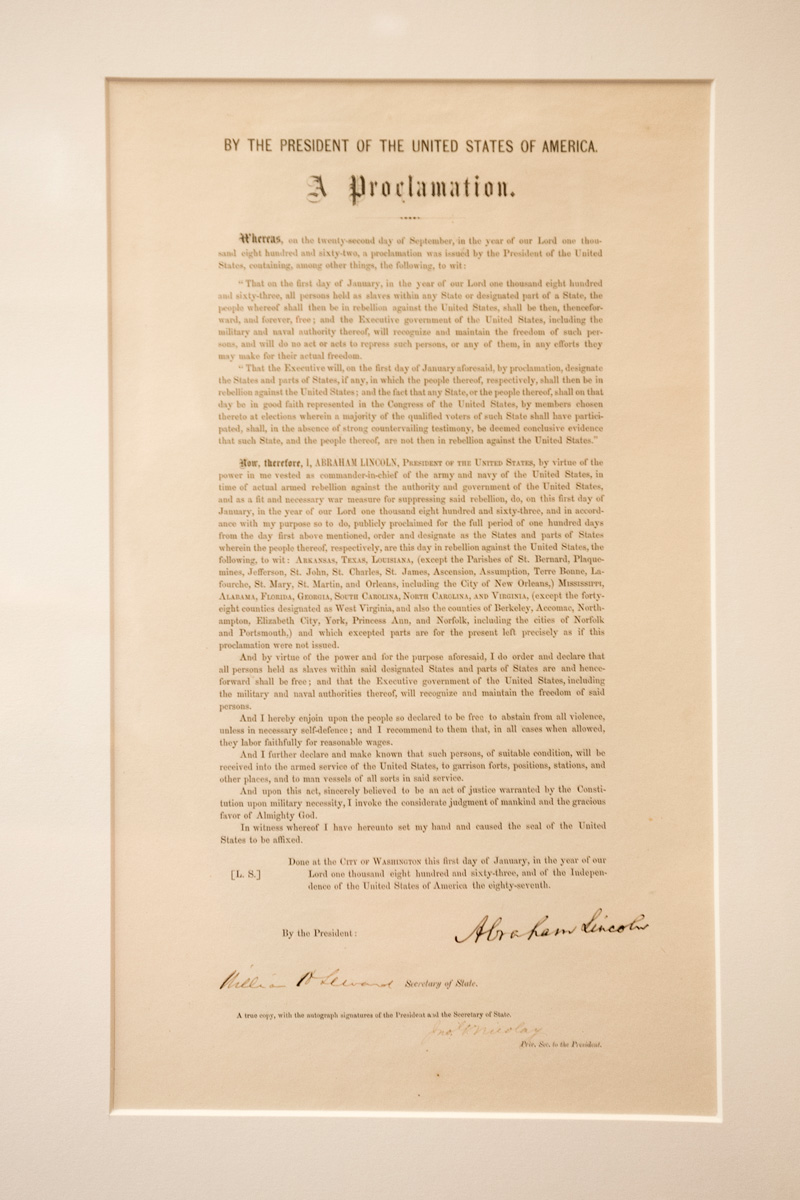
Within the Lincoln Collection, UD students, faculty and members of the wider community have access to a signed copy of Lincoln’s Emancipation Proclamation. This document, which freed slaves in southern states during the third year of the Civil War, is one of only 20 known copies in the world. There’s also a bandage used on Lincoln’s wound the night he was assassinated in 1865 and, from now through early June, an entire exhibition on the sanitary fairs which raised money to improve the wellbeing of Union soldiers. A series of political pamphlets by and about Lincoln — “The social media of the time,” according to Murray — offer a window into the cultural zeitgeist of the age.
“It’s very easy to think: ‘North versus South’ or ‘Union versus Confederacy,' ” Murray said. “But it wasn’t that simple.” Delaware, for example, was a paradox: a slaveholding state that supported the Union. At one point, Lincoln formulated a plan he called compensated emancipation. He was going to end slavery by paying owners to free their slaves, and Delaware was going to be the test case. It never came to a vote in the state’s General Assembly.
Digging deeper than “North versus South” — and understanding the heart and mind of the man who negotiated this precarious political climate — is the mission of the Lincoln Club, which hosts a lecture series every fall, in addition to their annual dinner meeting. Over the years, prominent speakers — including writers, scholars and filmmakers — have addressed the group on such topics as Lincoln’s oratorical style, his (possibly) salacious early life, and all the reasons he’s been written about more than any other human in history, except for Jesus Christ.
“Lincoln saved America,” said Sam Waltz, club secretary, at the most recent dinner. He’s also a longtime instructor in UD’s business school and the father of three Blue Hens. “If it weren’t for him, this nation would be two, three, maybe four separate countries.”
The evening kicked off with the musical stylings of pianist Tom Palmer, assistant professor of jazz and percussion at UD, who played Gershwin and Cole Porter songs to, he said, “match the elegant vibe of the night.” Later on, after a toast to Lincoln and a steak dinner, club president Shawn Nesbit, a UD graduate, addressed the group of 100 attendees from a podium.
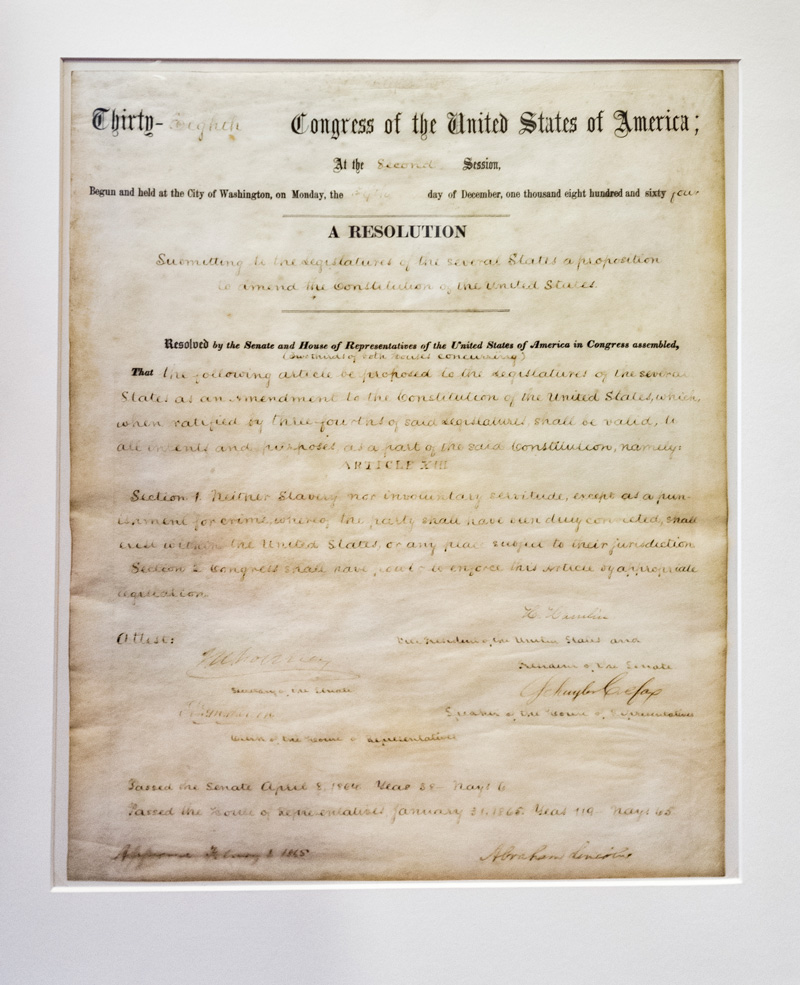
“We’ve grown into a strong and vibrant club,” he said. “Our membership continues to increase.” Cue the temporary blackout, and murmurs from the crowd that “Mr. Lincoln” might be expressing approval.
Next up, the evening’s honored speaker, David W. Blight, took the podium. A professor of history at Yale and a frequent reviewer of books for The New York Times, Blight is the Pulitzer Prize-winning author of a new biography entitled: Frederick Douglass: Prophet of Freedom. He gave the crowd a window into a speech given by Douglass in 1876 in Washington, D.C., at the unveiling of the Emancipation Memorial, 11 years after Lincoln’s assassination. In the audience were President Grant and members of his cabinet, the Supreme Court, and Congress. No other African American had held this audience before, and none would again until Barack Obama’s first inauguration.
“Douglass could have just done a nice, celebratory talk with a lot of good throwaway lines… 'Hooray, huzzah Lincoln!' ” said Blight, who also spoke at UD in 2013. “But he didn’t… In the first part of the speech, Douglass said: ‘You know, in the early part of the war, Abraham Lincoln was not our — ‘our’ meaning black people’s — president. Abraham Lincoln was the white man’s president.… By the end of the speech, Douglass admits emancipation came by Lincoln’s pace and Lincoln’s strategy, and it was probably the only way it could have. Both parts of the speech are dead honest. Both parts are true.”
For some outsiders, the educational component of the Lincoln Club is all well and good, but they can’t help but raise their eyebrows at the nicheness of an event where even dessert is an ode to Abe. (Karren Helsel-Spry, administrative assistant for UD’s Faculty Senate and the club’s executive assistant, spent an entire day baking Lincoln’s favorite almond cake and packaging individual slices for attendees. She even rolled out her sugar the old-fashioned way, just as Mary Todd Lincoln would have done.)
“I’ve been a member here for over 20 years,” said Marty Lessner, club treasurer. He was reading books about Lincoln in second grade, when most of his peers were enamored with Dr. Seuss, and his garage door opener is now programmed with important dates from Lincoln’s life. “But my wife, Lisa, refused to come until this year. She thought this would be like a Star Trek Convention, where everyone is speaking fluent Klingon.”
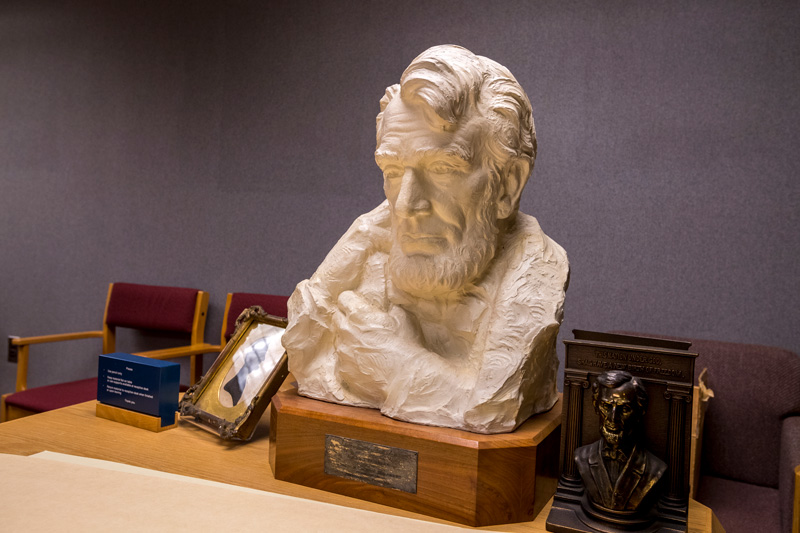
For what it’s worth, after finally attending, UD graduate Lisa Lessner found the night decidedly lacking in Klingon: “It’s actually nice to be in a room where both Democrats and Republicans are coming together.”
This idea of unity — a tenet of Lincoln’s presidency — is a common talking point when you ask Lincoln Club members what draws them to the association. Some have found that reflecting on Lincoln’s legacy, particularly his ability to keep a fractured nation together, offers a sense of hope.
“There’s a degree of polarization in this country that sounds very much like what was happening in Lincoln's time,” said Joan DelFattore, professor emerita of English at UD and incoming vice president of the Lincoln Club. “That may be why people find it interesting to learn more about what was happening then — and how Lincoln, and others, tried to resolve it.”
Of course, if it’s hope for the future one’s after, a good place to look might be at the next generation of Lincoln Club members. The night of the dinner, Jesse Roy and Andrew Kallai were awarded $1,000 college scholarships (sponsored by WSFS Bank).
Roy, a 17-year-old senior at Newark Charter High School, entered the club’s annual essay contest, in which he was asked to comment on one of Lincoln’s pre-war speeches and how it resonates today. Roy might put the scholarship money toward degrees in history, journalism and French at UD. Wherever Roy ends up, he said, he will take the lessons he learned from the 16th U.S. president with him, and so will many of his peers.
“Following the lead of Lincoln, students have held close their conception of justice, protesting climate change and segregation alike,” Roy wrote. “Will the world listen? We have but only one answer: if we persist.”
Joining the Lincoln Club
People interested in joining the Lincoln Club, which meets twice per year and requires only a nominal membership fee, should reach out to Joan DelFattore at jdel@udel.edu.
Contact Us
Have a UDaily story idea?
Contact us at ocm@udel.edu
Members of the press
Contact us at 302-831-NEWS or visit the Media Relations website

